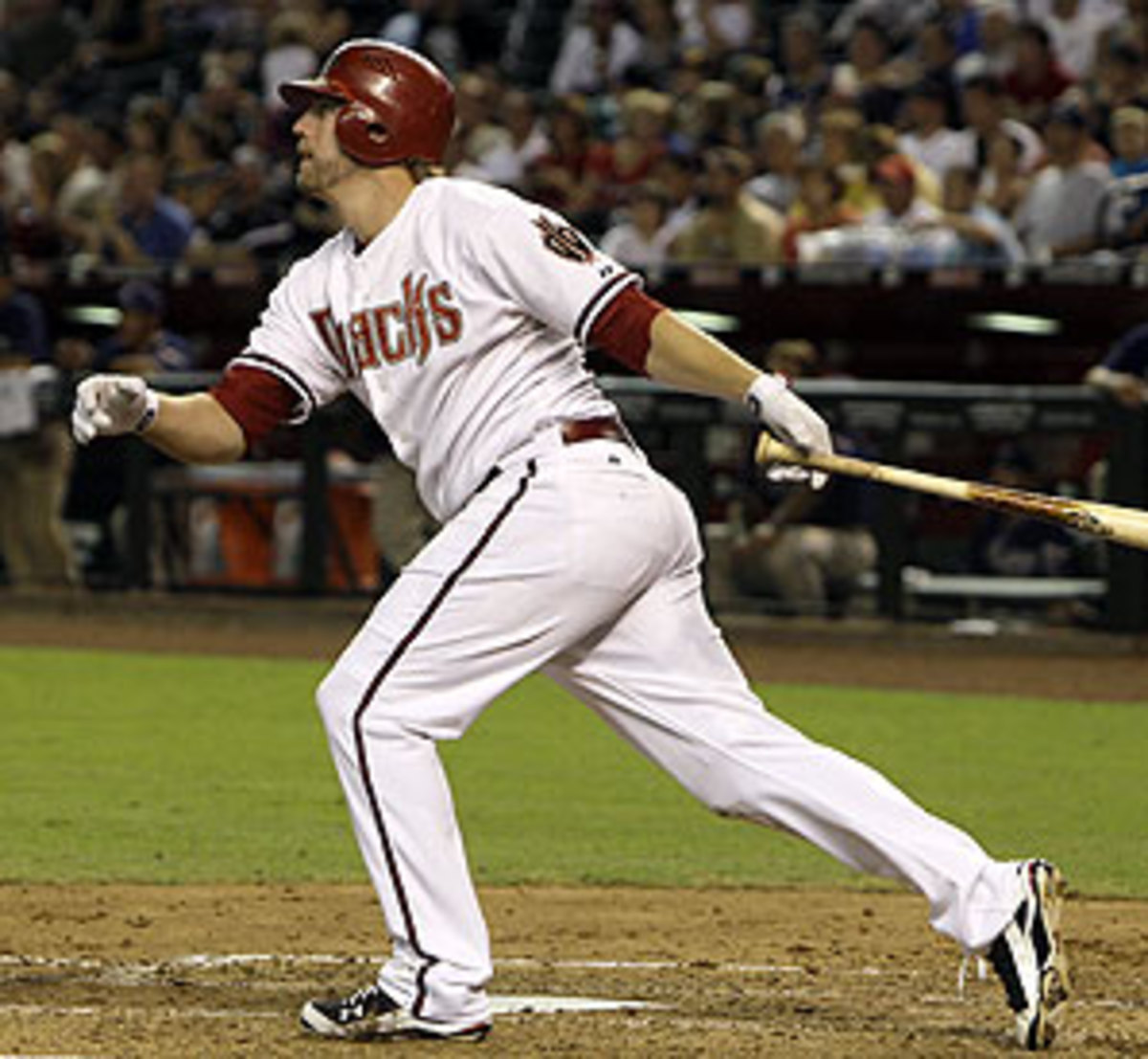Orioles take a chance on Reynolds
LAKE BUENA VISTA, Fla. -- Every general manager stays in the same hotel during the Winter Meetings, and that centralization of each team's top decision maker can facilitate trade talk -- and lead to some awkward moments after the completion of a deal.
After the Diamondbacks traded third baseman Mark Reynolds to the Orioles for hard-throwing right relievers David Hernandez and Kam Mickolio, both general managers were brought to the dais for a joint press conference. Some technical difficulties meant Arizona's Kevin Towers and Baltimore's Andy MacPhail even shared a microphone.
While standing at the podium, MacPhail explained his rationale for trading two promising young relievers for Reynolds, an all-or-nothing slugger who has averaged 35 home runs and 213 strikeouts in the last three season, by saying, "As an organization, we made a determination that it was going to be easier to replace the good arms in the 'pen than . . . potential middle-of-the-order bats that you would have control over . . . and have power. Those things are hard to come by."
This rationale was given just a few feet away from Towers stood, the man who had just traded one of the hard-to-come-by power bats for two 'good arms in the 'pen.' Awk-ward.
The market placing a premium for power had seemingly been reinforced in the past 48 hours with the prospect haul the Padres received from the Red Sox for Adrian Gonzalez and the mammoth seven-year, $126 million free-agent contract the Nationals handed to Jayson Werth. Obviously those two players are better and more complete than Reynolds, but surely his average of 62 extra-base hits the last three seasons should have drawn more of a return.
It is Reynolds' power that is, of course, endlessly tantalizing to the Orioles, who finished 10th in the American League in home runs and 11th in slugging last year -- both marks that ranked last in the AL East.
Manager Buck Showalter raved about Reynolds' "contact-to-damage" ratio and was quick to note that even in his subpar 2010 season in which he batted only .198, his 32 home runs and 85 RBIs would have led the Orioles. In 2009 Reynolds batted .260 with 44 homers and 102 RBIs, and he's signed affordably through 2012 with a team option for 2013.
"I don't see him as being a lot more than a .200 hitter," one National League scout said Monday, "but he'll always hit for that power."
The question now is what the Orioles can do to better harness that power. Showalter said "we are not going to profess to do something different than what Arizona is trying to do" in recognition that the Diamondbacks obviously tried hard to cut down on the third baseman's strikeouts. But Showalter's comment could have just been in deference to Towers, who again was standing nearby. One Orioles source said later that they will try their own methods in reworking his swing, even though such changes were apparently met with some resistance in Arizona.
"Reynolds was adamant about his approach -- that it's what got him here," the scout said. "But Buck has a way with guys and may be able to convince him to try these things."
Reynolds can still help Baltimore whether he changes his approach or not. When asked if he'd prefer Reynolds as a .200 hitter with 40 home runs or some compromise, such as .250 with only 25 or 30 home runs, Showalter replied, "Either."
The Orioles need offense desperately and the change of scenery could help. Reynolds grew up in Virginia Beach and attended the University of Virginia, so he'll back closer to home and only a little down the road from his college teammate Ryan Zimmerman, who plays for the Nationals.
MacPhail also noted the prevalence of lefthanded starters in the AL East, against whom Reynolds has fared much better. He only batted 20 points higher -- .218 against lefties; .191 against righties -- but saw the ball better and had an on-base percentage that was 82 points higher, .379 vs. .297.
At the very least the move buys time for Orioles third-base prospect Josh Bell to have another year of minor-league seasoning or perhaps Reynolds will begin to make contact more consistently again and force a move of Bell to first base -- another area of need for Baltimore.
The Diamondbacks got two strong, promising arms who no doubt will help their bullpen -- and they had a little power to spare, even with the loss of Reynolds and first baseman Adam LaRoche -- but for two downtrodden teams who had at least 96 losses last season, the Orioles got the player with the much higher upside.






